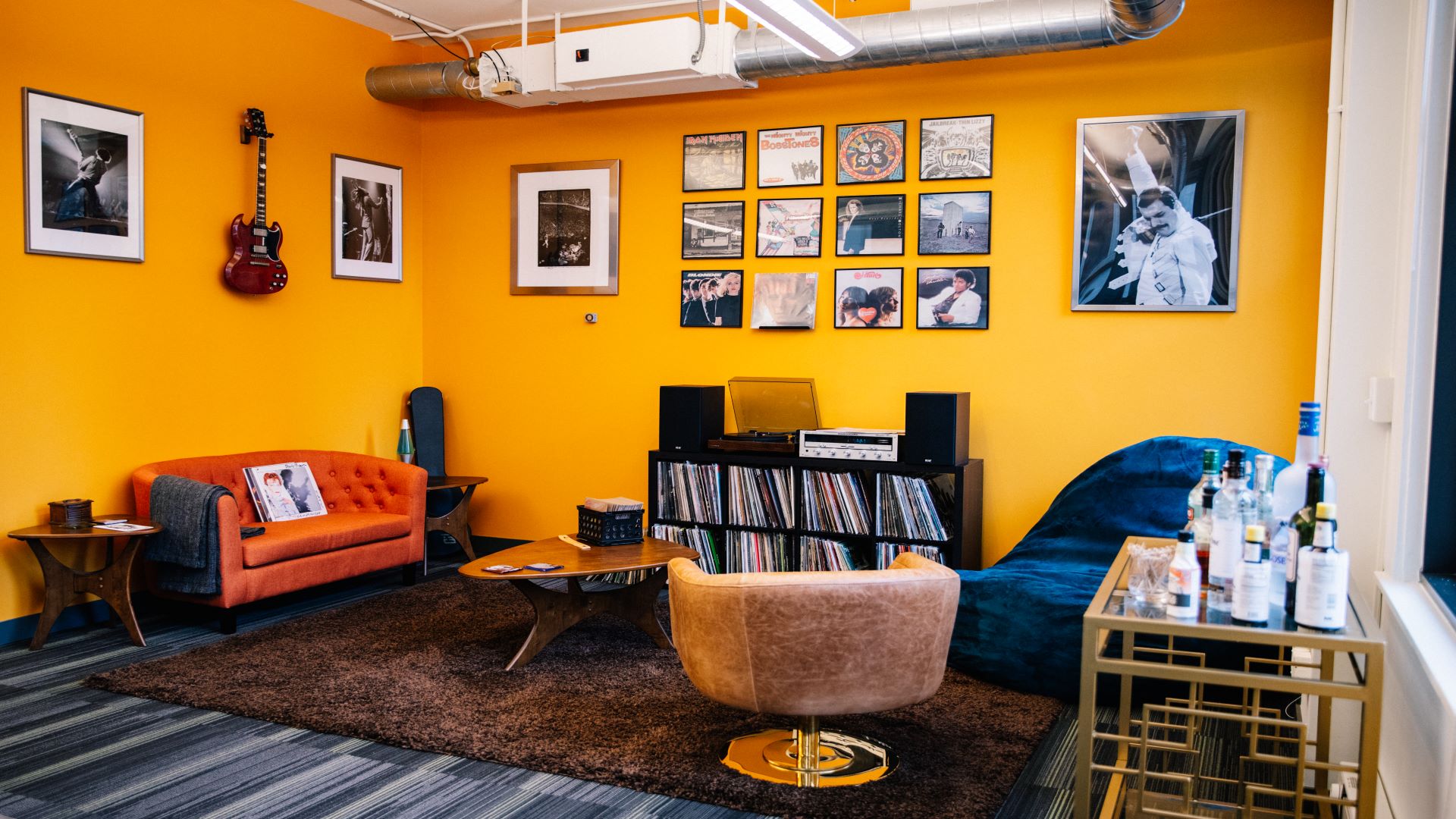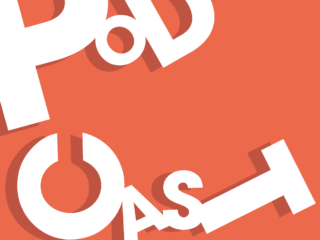While there are upsides to working remotely—not having to commute, being able to start a load of laundry at noon, and messy buns now being an acceptable hairstyle on Zoom calls—there are also challenges. For leaders, one of those challenges is keeping company culture alive and thriving. How do you maintain a culture when you can’t throw a record on the turntable or catch up during company-sponsored Friday lunches or over a glass of wine or beer at the end of the week?
I spoke with some of Leff’s leaders—Alia Samhat, VP of business and strategy; Delilah Zak, design director; Scott Leff, president; and Brittany Williams, editorial director—about the challenges they have faced keeping people engaged, connected, and aligned while remote.
Emma: How do you maintain and grow a company culture in this environment?
Brittany: We hired eight people in 2020—seven of whom started during lockdown—and we tried to use those occasions as reasons to gather people around nonwork virtual tables to connect and get to know one another. Each new person that walks into a company as small as ours changes the chemistry, so our job as leaders is to create those spaces for people to express themselves, be seen, and play a role in growing our culture. When we’re all slammed with work, it’s super tempting to keep all-team and department meetings strictly business, but even a few minutes of joking around is a huge balm—and it’s true to what we’d be doing if we were in the office together, too. We all love a good inside joke.
Delilah: Being transparent and communicating as much as possible—like way overcommunicating—is key to my design team being efficient and maintaining and growing the culture in a remote environment. My senior designer, Jake, calls me almost every other day to check on me, and I try to do the same for my other team members.
Alia: Keeping certain traditions alive—holiday parties, happy hours, and so on—helps. We try to make sure people can connect outside of work projects, which happens naturally in the office. Also, some of the most important aspects of our culture are giving people flexibility, having trust, and supporting our colleagues’ well-being. We’ve tried to make sure those cultural values are intact and best serving our people, which is why adorable toddlers join our all-team calls, people work modified hours, and we encourage people to step away from their screens from time to time. Company culture isn’t really the fun stuff or free snacks (although I miss the never-ending supply of popcorn); it’s about how we create a space for people to do their best work and support our talented employees.
Emma: What have you done to help keep morale up and retain a feeling of being a team?
Delilah: We have multiple design team meetings every week, and we usually end up talking about TV shows or other random things that help keep us together and laughing. Having little inside jokes helps with the remote situation.
Scott: We’ve tried to create a culture that recognizes work-related accomplishments (all credit to Allan Gold). Just because we can’t be together doesn’t mean we have to forget the feats of superhuman work strength our colleagues perform on a regular basis.
Brittany: As the official Leff Minister of Fun (a title I earned for being the primary party planner for most of the company’s history), I was really nervous but excited to put together our virtual holiday party this year. I knew it would be an uphill battle because it’s hard to be excited about sitting on yet another video call, even if you’re drinking a beer. So, we put together secret boxes and mailed them to everyone with the explicit instruction that they weren’t to open them until the holiday party, which created buzz and anticipation. We also pulled together a lightly structured agenda for the party: I asked folks to send in pictures from previous Leff outings, which we flipped through and laughed at while we recounted the stories. We also commissioned Cameo videos with personalized messages from some of our staff members’ favorite musicians and comedians. (John Cleese was by far the fan favorite.) The grand finale was opening the boxes—which had goodies from local Chicago vendors, a snazzy Leff-branded YETI tumbler, and personalized subscriptions attuned to each person’s hobbies—and our annual speech, which was delivered this year by Alia and struck a perfect balance of comedy and heartfelt gratitude for our team. It was just one event, but I think it made an outsized impact on morale and reminded us that we really do enjoy spending time together outside of work.
Emma: Have you learned anything about leading a team in the past year that you’ll carry forward when the pandemic is over?
Delilah: Being open, honest, and not hiding your feelings is essential. It makes you human and relatable. Being a manager isn’t easy, especially right now with everything remote, and I am still learning how to be a better manager every day. Empathy is needed now more than ever since team members can end up feeling super alone and stressed being stuck at home and not able to interact with each other, so checking in on one another is so important. I intend to be more intentional in this way when we can be together in person again.
Alia: We’re more reliant on people to communicate clearly and regularly in a virtual environment, and I’d like that to continue. It’s most successful when managers ask the right questions and communicate with emotional intelligence; there has been a heightened focus on that because of stress and anxiety associated with the pandemic, but it’s really something we should be doing all the time. I also realize that feeling isolated isn’t solely a virtual work environment problem. I think all of us are more attuned to that now, which will help us as we grow our team.
Scott: As soon as this pandemic is over, I intend to go back to all the analog, in-person activities that made this company fun: team lunches, happy hours, and company outings (yes, that means bowling). There’s a huge blowout waiting for everyone who works here when we can come out and play again. The longer it takes, the bigger it’s going to be.




Leave a Reply
You must be logged in to post a comment.